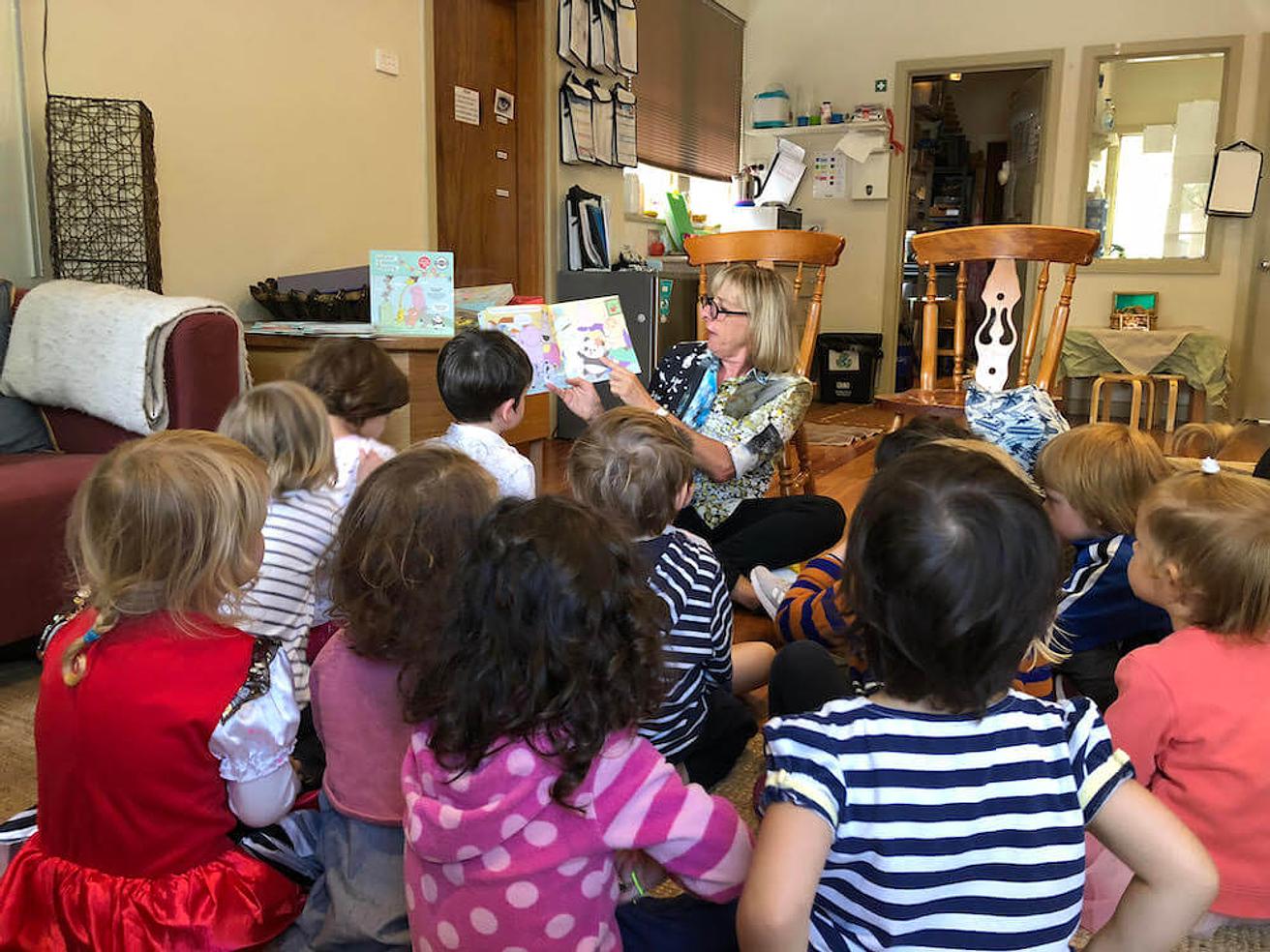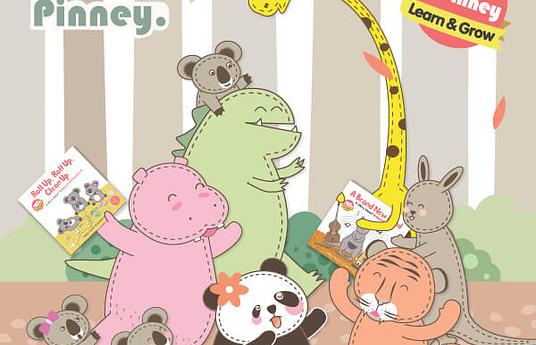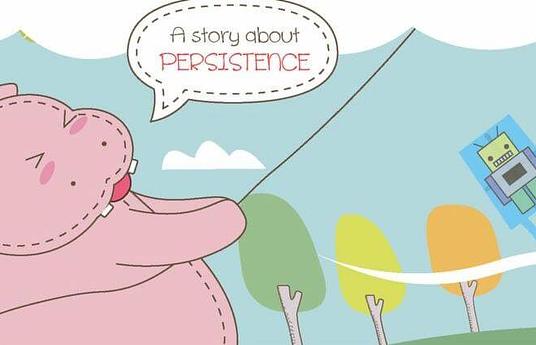Penny Harris, Director at Ginnie & Pinney, an innovation from our HundrED 2019 global collection, shares with us excerpts from two recent reviews of Ginnie & Pinney by Professor Emerita Doreen Rosenthal (for a publication of the School Library Association of Victoria, Volume 22, No 4) and by Dr. Janette Poulton (Journal of Philosophy in Schools (5-2)).
The Ginnie & Pinney program is a set of materials that have been written for children aged three to eight to encourage deep thinking and lively discussion between each other, their parents and teachers. The materials include an eight-book set, eight animated videos accessed via a QR code on the back of each book, a teacher’s resource and a set of nine Fair Trade finger puppets. Open-ended questions in the back of each book will aid teachers and parents in engaging with their students and children.
University of Melbourne’s Doctor of Education, Janette Poulton states ‘(The books) have been specifically written to align with the five Principles of the Australian Early Years Learning Framework (EYLF), which guide current educational practice in the early years throughout Australia. The EYLF curriculum promotes Belonging, Being and Becoming as three pillars of early childhood experience which are scaffolded through experiences of inclusiveness, responsibility, respect, and fairness.
The program addresses social and emotional learning, through which students acquire the knowledge and skills to understand and manage emotions, set and achieve positive goals, empathize with others, cultivate positive relationships, and make responsible decisions.
Based on EYLF 2009, Dr. Poulton, also believes
University of Melbourne’s Professor Emerita, Doreen Rosenthal states in her article for the VictorianTeacher Librarian Association’s FYI Journal that ‘While the focus of education has long been about STEM, educators now recognize the importance of encouraging social and emotional intelligence (EQ) in young children. EQ is regarded as a critical learning component in enabling them to think about and understand ethical issues as they grow into adults.
In the Harvard Graduate School of Education (2018), in its Making Caring Common project, an article underpins the Ginnie & Pinney concept by stating 'Empathy is at the heart of what it means to be human. It’s a foundation for acting ethically, for good relationships of many kinds, for loving well, and for professional success. And it’s key to preventing bullying and many other forms of cruelty.'
Professor Rosenthal goes on to say ‘With increasing focus on the importance of these aspects of intelligence, the Ginnie and Pinney materials are a valuable resource to improve emotional comprehension, social competence and ethical thinking in young children. The stories support their learning in relation to personal and social capabilities and provide opportunities for young children to learn about their own emotions, values, and strengths.

The focus of the books is for the children to apply EQ, empathy and reason about the ethical problems presented in each story. This is done through interactive child and teacher/adult-directed discussions. This approach to learning emphasizes children’s ability to cultivate open discussion and philosophical inquiry improving the developmental needs of the child.’
The author, Penny Harris, is well qualified to develop educationally appropriate materials. She has worked on various educational projects for many years and has won numerous Australian Teachers of Media Awards (A.T.O.M) and multiple Interactive Media Awards of America. The Ginnie and Pinney materials represent a partnership with illustrator Winnie Zhou. Together they have created stories and characters that mimic real-life scenarios in a gentle and humorous way. The simple writing style is interwoven with a smattering of onomatopoeic words to describe the sound of instruments as well as some rhyming to add a lightheartedness to the text. This results in stories that engage the reader while not detracting from the seriousness of the emotional themes highlighted in each book.
The materials are written in both English and Mandarin Chinese in consultation with Australian and Chinese Academics; Doctor of Linguistics, Marietta Elliot-Kleerkoper; Doctor of Education, Janette Poulton; and Professor Emerita Doreen Rosenthal AO, Developmental Psychologist and consultants from the Qilu Normal University, Shandong Province, People’s Republic of China.
Mimicking real life, the nine characters, with their different personalities demonstrate various ways of dealing with each other and the emotional themes of selflessness, responsibility, persistence, sharing, self-identity, inclusiveness, empathy and accepting differences. Each of these is themes consistent with the Australian Curriculum’s Critical and Creative Thinking, Personal and Social Capability and Ethical Understanding. Talk and thought bubbles reflect what one might think and what one might say, an intended device to focus children on the difference between the two.
Dr. Poulton quotes a leading exponent on P4C, Laurence Splitter (2001), who makes a point about ‘story-as-text striking a balance between literature and structured text. He continues ‘a story as text seeks to problematize the everyday activities and experiences of its characters.’ Dr. Poulton believes the Ginnie and Pinney stories ‘successfully meet several of Splitter’s guidelines for useful stimulus material, namely; (1) familiar contexts and multiple perspectives, (2) elements of dialogue modeled between characters and (3) open-ended endings.’
Splitter (2001, p. 1) also states that materials should ‘Be interesting and accessible to students and connected, in some way, to their experience (so, not too general or remote).’ Dr Poulton states the ‘Ginnie & Pinney stories are set in the familiar world of the child—the home, the playground and the garden.’ And are about ‘exploring the complexities of these settings’ without creating too comfortable a world for the reader. Splitter continues: ‘Be intriguing by focusing on situations, concepts or ideas which are problematic, unclear or puzzling, and so need further discussion and investigation’ (p. 1). By presenting multiple perspectives on a situation and mimicking real life, the Ginnir & Pinney characters with their different personalities demonstrate various ways of dealing with each other and the emotional themes outlined in the EYLF. How is this achieved at this early stage of development? There is much evidence that encouraging EQ in young children leads to

The Ginnie & Pinney program is a unique, innovative and beautifully produced resource designed to help young children to develop important skills in empathy, ethical thinking, and EQ. The materials are highly recommended for use in both early childhood and early primary education and care services.
Dr. Poulton sums up, ‘Ginnie & Pinney stories have a depth to them that will support the development of open-minded and reasonable moral judgment as a tool in the hands of capable practitioners’ and assists in the developmental needs of young children.
Thanks to Dr. Janette Poulton and Professor Emerita Doreen Rosenthal for sharing their testimonial for the Ginnie & Pinney program. From our HundrED 2019 global collection, head to Ginnie and Pinney's innovation page to learn more about their work!


